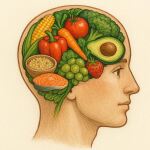Discover the broken heart syndrome: why on Valentine's Day?
What is Broken Heart Syndrome? Find out why experts warn about it on the eve of Valentine's Day. A physical and emotional condition that can affect your health if left untreated, find out how to prevent it!...
The heart is a vital organ, and according to the Argentine Society of Cardiology (SAC) and the Argentine Cardiology Foundation (FCA), it is possible for it to break.
This statement was issued on the eve of Valentine's Day to raise awareness of the issue.
A study published by the American Heart Association (AHA) revealed that middle-aged and older women are 10 times more likely to suffer from this syndrome than men or younger women. Dr. Salvatori highlighted the fundamental role between brain and heart in this context.
It is important to consider other factors such as stress, depression or sadness when assessing cardiac well-being, as they are not as easily quantifiable as cholesterol, blood pressure or blood glucose levels.
Therefore, the SAC and FCA recommend seeing a doctor if symptoms related to this problem occur so that they can be treated in time.
Takotsubo syndrome, also known as broken heart syndrome, is a relatively recent cause described in Japan during the 1990s.
This condition is characterized by a change in the shape of the heart, which acquires a bulging shape with a narrow neck - similar to the vessel used by Japanese fishermen to catch octopuses - after suffering a type of cardiac insult.
According to Salvatori, this syndrome is mainly related to non-modifiable factors such as genetic background or age; however, there are also other factors associated with the development of this pathology that are modifiable, such as arterial hypertension, dyslipidemia, smoking, diabetes and obesity.
In addition, there are psychosocial factors that contribute to cardiovascular risk and can be considered as part of the differential diagnosis for Takotsubo syndrome.
Treatment includes medication to control modifiable cardiovascular risk factors associated with the development of the syndrome and cognitive-behavioral therapy to help manage underlying emotional problems.
Takotsubo syndrome is a heart disease characterized by symptoms similar to those of myocardial infarction.
This condition occurs mainly in postmenopausal women, who after experiencing some kind of unexpected stress (physical or emotional) release excessive adrenaline.
Key signs include chest pain, shortness of breath, EKG abnormalities, and elevated cardiac enzymes; however, the cause is not arterial occlusion as with atherosclerotic disease.
The results of the catheterization will show that the arteries of the heart are normal; however, there is a decrease in blood flow to the tip of the heart which causes a temporary weakening. Fortunately this effect usually disappears after a few weeks and the heart returns to normal contraction.
Takotsubo syndrome can also be caused by other factors such as long-term use of high blood pressure medications or chronic alcohol abuse.
Subscribe to the free weekly horoscope
Aquarius Aries Cancer Capricorn Gemini Leo Libra Pisces Sagittarius Scorpio Taurus Virgo
-
 How to improve the quality of the sex you have with your partner
How to improve the quality of the sex you have with your partner
Discover the secret to good sex: a key factor that is often overlooked and transforms the quality of your intimate relationships. -
 Libra woman in love: Are you compatible?
Libra woman in love: Are you compatible?
Although she may be calm and composed on the surface, her inner emotions are strong. -
 Leo relationships and love tips
Leo relationships and love tips
A relationship with a Leo is like a quest for bold ambitions and true love, as these natives do not settle for less than they think they deserve. -
 How to seduce a Libra man from A to Z
How to seduce a Libra man from A to Z
Find out how to make your Libra man fall in love with you and what to look out for. -
 Ideal partner for the Virgo man: Romantic and sincere
Ideal partner for the Virgo man: Romantic and sincere
The perfect soul mate for the Virgo man corresponds to his feelings and is always committed and very reliable.
I am Patricia Alegsa
I have been writing horoscope and self-help articles professionally for over 20 years.
Subscribe to the free weekly horoscope
Receive weekly in your email the horoscope and our new articles on love, family, work, dreams and more news. We do NOT send spam.
Astral and numerological analysis
-
 Discover your future, secret personality traits and how to improve in love, business and life in general
Discover your future, secret personality traits and how to improve in love, business and life in general
-
 Online Dream Interpreter: with artificial intelligence
Do you want to know what a dream you had means? Discover the power of understanding your dreams with our advanced online dream interpreter using artificial intelligence that responds to you in seconds.
Online Dream Interpreter: with artificial intelligence
Do you want to know what a dream you had means? Discover the power of understanding your dreams with our advanced online dream interpreter using artificial intelligence that responds to you in seconds.
-
 Gemini's relationship with their spouse
Gemini's relationship with their spouse
Gemini is a changeable Air sign, their feelings about marriage and relationship now may be very different later. -
 Don't fall in love with a Cancer
Don't fall in love with a Cancer
Don't fall in love with a Cancer because even if you swear you won't and swear they are not your type, you will find yourself falling for them. -
 5 Ways to Attract a Sagittarius Man: Top Tips to Make Him Fall for You
5 Ways to Attract a Sagittarius Man: Top Tips to Make Him Fall for You
Discover the type of woman he is looking for and how to win her heart. -
 Find out why you have not yet found your soul mate according to your zodiac sign
Find out why you have not yet found your soul mate according to your zodiac sign
Still haven't found your soul mate? Find out why your zodiac sign can be the key to finding the right person. -
 Find out why your ex doesn't want to get back together with you according to your zodiac sign
Find out why your ex doesn't want to get back together with you according to your zodiac sign
Discover how horoscope signs can wear your partner down and find out why your ex doesn't want to get back together with you according to your zodiac sign - don't miss it! -
 Women of the sign Cancer in love: Are you compatible?
Women of the sign Cancer in love: Are you compatible?
His intuition is unparalleled, especially in love. -
 The Gemini man in a relationship: Understand and keep him in love
The Gemini man in a relationship: Understand and keep him in love
The Gemini man is quite pragmatic and fun-loving, so you won't see him analysing his emotions or his partner's reactions. -
 What does it mean to dream of threads?
What does it mean to dream of threads?
Discover the meaning of dreaming about threads in this detailed article. From tangles to fabrics, we help you interpret what this dream may represent in your life. -
 Brain Diet: 7 Foods Against Dementia and Cognitive Decline
Brain Diet: 7 Foods Against Dementia and Cognitive Decline
Brain Diet: 7 Foods That Protect Your Memory and Prevent Cognitive Decline and Dementia. Experts Reveal Key Habits in Midlife. -
 What does it mean to dream of extraterrestrials?
What does it mean to dream of extraterrestrials?
Discover the possible meaning behind dreams with aliens - are they a sign of a supernatural experience or a metaphor for something deeper? Find answers in our article! -
 What does it mean to dream of water?
What does it mean to dream of water?
Discover the meaning behind your water dreams. From calm currents to raging storms, what messages is your subconscious sending you? Find answers in our article. -
 There are people who avoid looking into the eyes when speaking. What does this mean?
There are people who avoid looking into the eyes when speaking. What does this mean?
Discover the meaning of not looking someone in the eye while speaking and the reasons behind this behavior. Eye contact is key in communication. Get informed here! -
 What does it mean to dream of squid?
What does it mean to dream of squid?
Discover the meaning behind your dreams with squid. Do they represent hidden fears or an opportunity for prosperity? Find answers in this article.